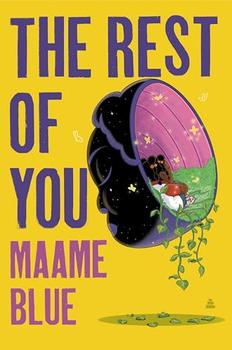Summary | Excerpt | Reading Guide | Reviews | Readalikes | Genres & Themes | Author Bio

ANJALI
DECEMBER 3, 1984 BHOPAL RAILWAY STATION BHOPAL, INDIA
I waited patiently for the first hour, and then I started to get impatient. The Bhopal Railway Station was abuzz with late-night activities. The homeless were wandering, begging for money and food; some people were waiting for their train to arrive and others, like me, were waiting for someone to pick them up, as the hands of the big dirty clock in front of me came together to welcome midnight.
I turned my wrist again to look at the watch my husband had given me after our wedding just a few months ago. It was a nice Titan watch, with a green background and red numbers and hands. It was a compulsive action to look at the watch, since I already knew what the time was.
Why wasn't he here? He knew when I was getting back. He had bought the tickets himself. How could he have forgotten?
Soon the homeless stopped begging and started looking for places to settle in for the night. The Station Master used a long, thick wooden stick to prod the homeless, who were sleeping in front of his office and the waiting rooms, into moving. He was successful with some and unsuccessful with others. He looked at me curiously and then ignored me. He had probably seen many women wait for their husbands or loved ones at the railway station.
I flipped once again through the Femina magazine I had bought at the Hyderabad Railway Station. By now I had read all the articles and the short story, and the advertisements, but I looked through them once more to avoid staring at the dirty white clock or my beautiful watch.
"Memsaab, taxi?" a Sardarji taxi driver asked me.
I inched farther back into the metal chair I was sitting on, grasping my purse tightly in my lap and moving my sari-clad leg to touch my small suitcase in a subconscious effort to protect it.
"No," I said, and focused on the slightly crumpled pages of my magazine.
"Late in the night it is now, Memsaab." Sardarji was undeterred by my casual refusal. "Not safe it is at the station."
I let the fear of being accosted late in the night pass first. My husband would be here soon, I told myself. I thought up an excuse: His scooter must have broken down. I thought up another: The tire must have been punctured. It happened all the time on the bad roads of Bhopal.
"Where do you have to go?" Sardarji asked me.
I took a deep breath and looked at him. He didn't look dangerous in the dim yellow lights of the railway station, but you can never tell by someone's face what he is capable of.
"Bairagarh," I said succinctly, and he moved away from me without comment. The EME Center was in Bairagarh and if I lived there, I was an army wife, and he probably didn't want to mess with me.
I kept time with my shifting feet and the rustle of the oft-turned pages of the magazine, pages that didn't look brand-new and glossy anymore, but were wrinkled like the ones roadside peanut vendors wrapped fried peanuts in. My eyes wandered to the entrance of the station, again and again looking for a familiar face.
I didn't even know how to get in touch with my husband—we didn't have a phone. Colonel Shukla did. I could call him, I thought, and then decided against it. How would it look if people knew my husband forgot to pick me up?
I turned my head when there was a small commotion at the other end of the station, and it started then. Slowly, but surely, it spread.
I became aware of it for the first time when I inhaled and felt my lungs being scratched by nails from the inside, like someone had thrown red chili powder into my nose. I took another breath and it didn't change. I clasped my throat and closed my eyes as they started to burn and water. Something was wrong, my mind screamed wildly as I, along with the others, tried to seek a reason for the tainted air we were breathing.
Excerpted from A Breath of Fresh Air by Amulya Malladi. Copyright 2002 by Amulya Malladi. Excerpted by permission of Ballantine Books, a division of Random House, Inc. All rights reserved. No part of this excerpt may be reproduced or reprinted without permission in writing from the publisher.




The thing that cowardice fears most is decision
Click Here to find out who said this, as well as discovering other famous literary quotes!
Your guide toexceptional books
BookBrowse seeks out and recommends the best in contemporary fiction and nonfiction—books that not only engage and entertain but also deepen our understanding of ourselves and the world around us.